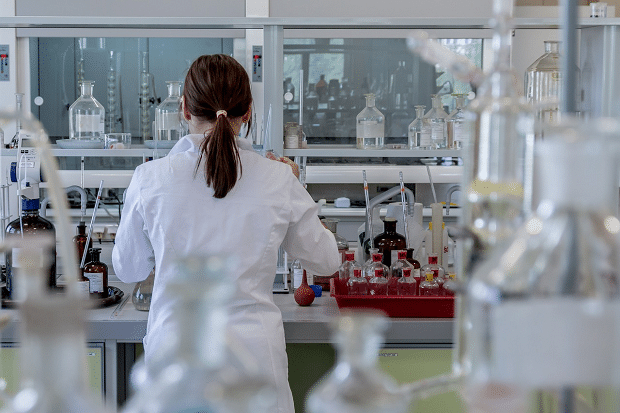
The lab will be used to develop treatments for cancer, dementia and heart disease.
The programme aims to improve cancer screening and speed up results, use DNA data to identify patients most at-risk of diseases, upskill the workforce to use artificial intelligence (AI) systems and automate routine administration tasks to free up clinicians.
The lab will sit within NHSX, in partnership with the Accelerated Access Collaborative, and bring together the industry’s best academics, specialists and technology companies to harness the power of AI to improve the health and lives of patients.
Matthew Gould, chief executive of NHSX, added: “Today’s announcement gets the NHS ready for the AI revolution, so that doctors can identify and treat disease faster and more effectively. It also puts the UK in pole position for healthtech research and lifesaving innovations.”
Prime Minister Boris Johnson said the extra funding will “boost the front line by automating admin tasks and freeing up staff to care for patients”.
.@MattHancock announces a new £250 million fund for a National Artificial Intelligence Lab to develop cutting-edge treatments for cancer, dementia & heart disease.@NHSX will deliver these innovations to the highest standards of data ethics & privacy.#OurNHSstories #HealthTech pic.twitter.com/of08Xqeajr
— Department of Health and Social Care (@DHSCgovuk) August 8, 2019
Among the improvements that the NHS’ new AI Lab could deliver are:
- Faster cancer screening test results, including mammograms, brain scans, eye scans and heart monitoring, helping to save millions of lives a year.
- Better estimates for future needs of beds, drugs, devices, or operations.
- The ability to identify people most at risk of diseases such as heart disease or dementia, thereby diagnosing problems earlier.
- Working out which patients can access treatment easily in the community instead of at hospital.
- Free up clinicians’ time by automating some routine admin tasks, as well as upskilling NHS staff so they can use AI systems for day-to-day tasks.
- Building systems to detect people at risk of post-operative complications, infections or requiring a follow-up from clinicians.
Patrick Stephenson, Managing Director, Central and Regional Government, Fujitsu UK&I, said the move could revolutionise everything from patient treatment to drug development and discovery.
“Incorporating artificial intelligence into healthcare is crucial for alleviating the pressures that the industry faces on a daily basis, from assisting with diagnoses to dramatically reducing the time taken for drug discovery and development,” Stephenson said. “By using deep pattern learning, AI has the potential to not only reduce diagnosis time, but can do so at scale and will ultimately play a key role in improving the quality of the services that are offered to patients across the world. Embracing this technology is the next step in providing world-leading healthcare.”
